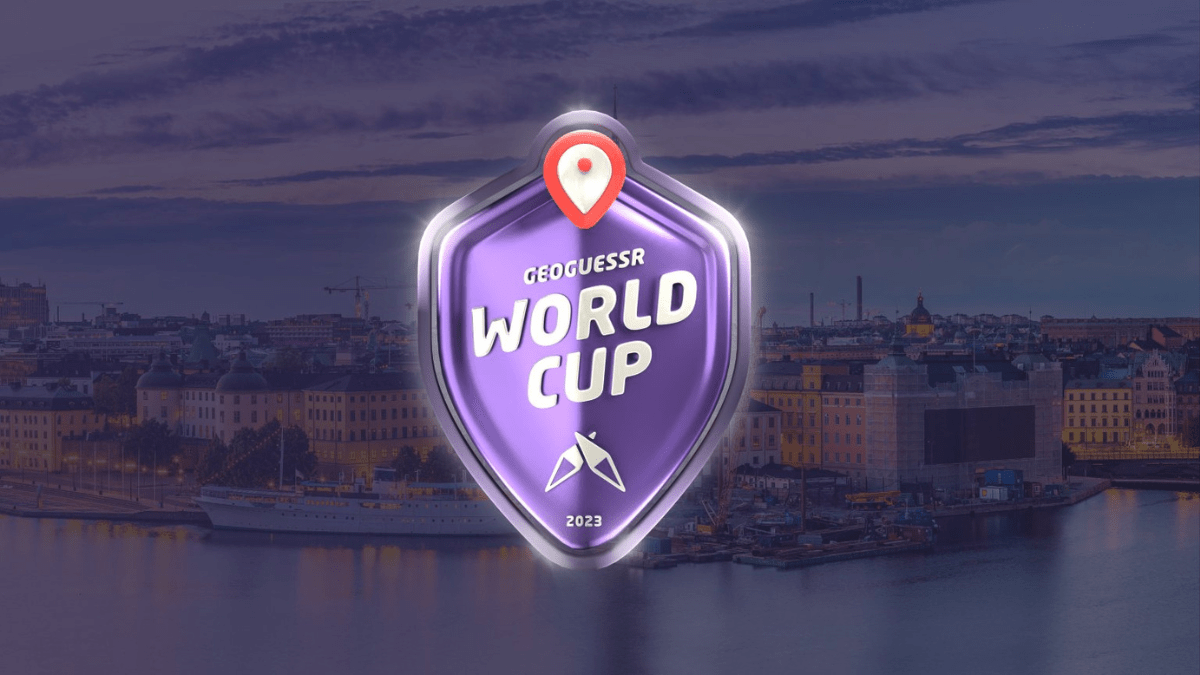Call of Duty, League of Legends, Counter-Strike: Say hello to the new kid on the esports block.
Geography game GeoGuessr hosted its inaugural World Cup final live from Stockholm’s Space Arena on Oct. 14, and thousands of viewers tuned in throughout the broadcast, peaking at 58,000 concurrently. France’s Blinky and Consus from the Netherlands took to the finals stage in an epic best-of-five series.
After a grueling journey all the way from the closed qualifiers, the “Dutch Destroyer” Consus took down Blinky with a convincing 3-1 score and was crowned with the historic world champion title and a trophy that broke minutes after he was crowned.
24 participants—each representing a country—were either invited to compete directly or to play through the closed qualifiers for the event. The players were divided into four separate groups for the Oct. 13 group stage matches, competing for a share of $50,000 USD.
GeoGuessr isn’t exactly something that comes to mind when one thinks of esports, but the competition still had everyone on the edge of their seats.
The premise of the free-to-play browser game is that you’re dropped into a random place in the world and need to figure out where you are using aspects of your surroundings, like telephone poles or greenery. The closer you “plonk” to the correct location, the more points you earn.
In the classic version of the game, the player is able to move around and pan the screen to get a better idea of where they may have ended up. In the context of competitive GeoGuessr, this is called “Move.”
Other variants are “No Move” and “No Move, Pan or Zoom,” limiting the player’s movement to increase the difficulty. The best-of-three fixtures leading up to the finals had each new match played with variants in the order of M, NM, and PZ.
All matches in the tournament were played in the duel format. Each game contained ten rounds, all handpicked. Both players start with 6000 health, which players can chip away at by getting closer to the location than their opponent. The damage multipliers increase in 0.5x increments every round and there’s no chance for it to regenerate. Players only had a minute each round to explore their surroundings and 15 seconds to plonk their guess.
GeoGuessr has been on Twitch’s radar as a fun way to pass the time for a while, garnering over 11 million viewers over 2022 as per stats site Sully Gnome, and has spawned unofficial spin offs for games like Fortnite and Genshin Impact.
That said, as shown by its appearance on Games Done Quick, GeoGuessr is a game that people take seriously in the speedrunning space, optimizing their performance in a variety of different categories—at the time of writing, Blinky currently holds three records.
This leap into esports, however, is unprecedented, enhanced by the roaring live audience and commentary from experienced talent like Trevor Rainbolt. An unofficial GeoGuessr Team World Cup took place last year around October at LAN in Paris, but this is the game’s first formal foray into esports since it launched back in May 2013.
GeoGuessr has grown a lot since its inception, something that isn’t lost on the game’s founders. “10 years ago, we were just a few friends having some fun with a hobby project,” they said in a post-finals Tweet. “Tonight. We held a World Cup with hundreds of thousands of people tuning in. From the bottom of our hearts, thank you.”
There’s a bright future ahead for the young esport—let’s hope this is the first of many World Cups to come.












Published: Oct 15, 2023 04:18 am